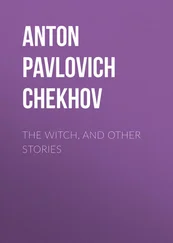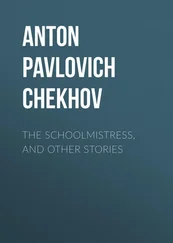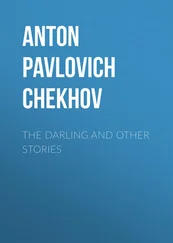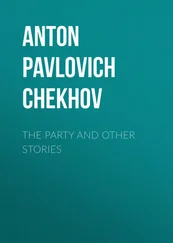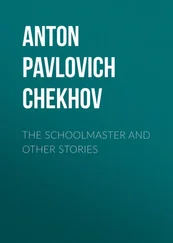Anton Chekhov - The Bishop and Other Stories
Здесь есть возможность читать онлайн «Anton Chekhov - The Bishop and Other Stories» весь текст электронной книги совершенно бесплатно (целиком полную версию без сокращений). В некоторых случаях можно слушать аудио, скачать через торрент в формате fb2 и присутствует краткое содержание. Жанр: Классическая проза, на английском языке. Описание произведения, (предисловие) а так же отзывы посетителей доступны на портале библиотеки ЛибКат.
- Название:The Bishop and Other Stories
- Автор:
- Жанр:
- Год:неизвестен
- ISBN:нет данных
- Рейтинг книги:3 / 5. Голосов: 1
-
Избранное:Добавить в избранное
- Отзывы:
-
Ваша оценка:
- 60
- 1
- 2
- 3
- 4
- 5
The Bishop and Other Stories: краткое содержание, описание и аннотация
Предлагаем к чтению аннотацию, описание, краткое содержание или предисловие (зависит от того, что написал сам автор книги «The Bishop and Other Stories»). Если вы не нашли необходимую информацию о книге — напишите в комментариях, мы постараемся отыскать её.
The Bishop and Other Stories — читать онлайн бесплатно полную книгу (весь текст) целиком
Ниже представлен текст книги, разбитый по страницам. Система сохранения места последней прочитанной страницы, позволяет с удобством читать онлайн бесплатно книгу «The Bishop and Other Stories», без необходимости каждый раз заново искать на чём Вы остановились. Поставьте закладку, и сможете в любой момент перейти на страницу, на которой закончили чтение.
Интервал:
Закладка:
But all at once they heard the sound of steps; someone was coming in haste.
"He's carrying something," said Vassya.
They could hear the grass rustling and the dry twigs crackling under the feet of the approaching wayfarer. But from the glare of the camp fire nothing could be seen. At last the steps sounded close by, and someone coughed. The flickering light seemed to part; a veil dropped from the waggoners' eyes, and they saw a man facing them.
Whether it was due to the flickering light or because everyone wanted to make out the man's face first of all, it happened, strangely enough, that at the first glance at him they all saw, first of all, not his face nor his clothes, but his smile. It was an extraordinarily good-natured, broad, soft smile, like that of a baby on waking, one of those infectious smiles to which it is difficult not to respond by smiling too. The stranger, when they did get a good look at him, turned out to be a man of thirty, ugly and in no way remarkable. He was a tall Little Russian, with a long nose, long arms and long legs; everything about him seemed long except his neck, which was so short that it made him seem stooping. He was wearing a clean white shirt with an embroidered collar, white trousers, and new high boots, and in comparison with the waggoners he looked quite a dandy. In his arms he was carrying something big, white, and at the first glance strange-looking, and the stock of a gun also peeped out from behind his shoulder.
Coming from the darkness into the circle of light, he stopped short as though petrified, and for half a minute looked at the waggoners as though he would have said: "Just look what a smile I have!"
Then he took a step towards the fire, smiled still more radiantly and said:
"Bread and salt, friends!"
"You are very welcome!" Panteley answered for them all.
The stranger put down by the fire what he was carrying in his arms -it was a dead bustard-and greeted them once more.
They all went up to the bustard and began examining it.
"A fine big bird; what did you kill it with?" asked Dymov.
"Grape-shot. You can't get him with small shot, he won't let you get near enough. Buy it, friends! I will let you have it for twenty kopecks."
"What use would it be to us? It's good roast, but I bet it would be tough boiled; you could not get your teeth into it. . . ."
"Oh, what a pity! I would take it to the gentry at the farm; they would give me half a rouble for it. But it's a long way to go- twelve miles!"
The stranger sat down, took off his gun and laid it beside him.
He seemed sleepy and languid; he sat smiling, and, screwing up his eyes at the firelight, apparently thinking of something very agreeable. They gave him a spoon; he began eating.
"Who are you?" Dymov asked him.
The stranger did not hear the question; he made no answer, and did not even glance at Dymov. Most likely this smiling man did not taste the flavour of the porridge either, for he seemed to eat it mechanically, lifting the spoon to his lips sometimes very full and sometimes quite empty. He was not drunk, but he seemed to have something nonsensical in his head.
"I ask you who you are?" repeated Dymov.
"I?" said the unknown, starting. "Konstantin Zvonik from Rovno.
It's three miles from here."
And anxious to show straight off that he was not quite an ordinary peasant, but something better, Konstantin hastened to add:
"We keep bees and fatten pigs."
"Do you live with your father or in a house of your own?"
"No; now I am living in a house of my own. I have parted. This month, just after St. Peter's Day, I got married. I am a married man now! . . . It's eighteen days since the wedding."
"That's a good thing," said Panteley. "Marriage is a good thing
. . . . God's blessing is on it."
"His young wife sits at home while he rambles about the steppe," laughed Kiruha. "Queer chap!"
As though he had been pinched on the tenderest spot, Konstantin started, laughed and flushed crimson.
"But, Lord, she is not at home!" he said quickly, taking the spoon out of his mouth and looking round at everyone with an expression of delight and wonder. "She is not; she has gone to her mother's for three days! Yes, indeed, she has gone away, and I feel as though I were not married. . . ."
Konstantin waved his hand and turned his head; he wanted to go on thinking, but the joy which beamed in his face prevented him. As though he were not comfortable, he changed his attitude, laughed, and again waved his hand. He was ashamed to share his happy thoughts with strangers, but at the same time he had an irresistible longing to communicate his joy.
"She has gone to Demidovo to see her mother," he said, blushing and moving his gun. "She'll be back to-morrow. . . . She said she would be back to dinner."
"And do you miss her?" said Dymov.
"Oh, Lord, yes; I should think so. We have only been married such a little while, and she has gone away. . . . Eh! Oh, but she is a tricky one, God strike me dead! She is such a fine, splendid girl, such a one for laughing and singing, full of life and fire! When she is there your brain is in a whirl, and now she is away I wander about the steppe like a fool, as though I had lost something. I have been walking since dinner."
Konstantin rubbed his eyes, looked at the fire and laughed.
"You love her, then, . . ." said Panteley.
"She is so fine and splendid," Konstantin repeated, not hearing him; "such a housewife, clever and sensible. You wouldn't find another like her among simple folk in the whole province. She has gone away. . . . But she is missing me, I kno-ow! I know the little magpie. She said she would be back to-morrow by dinner-time. . . . And just think how queer!" Konstantin almost shouted, speaking a note higher and shifting his position. "Now she loves me and is sad without me, and yet she would not marry me."
"But eat," said Kiruha.
"She would not marry me," Konstantin went on, not heeding him. "I have been struggling with her for three years! I saw her at the Kalatchik fair; I fell madly in love with her, was ready to hang myself. . . . I live at Rovno, she at Demidovo, more than twenty miles apart, and there was nothing I could do. I sent match-makers to her, and all she said was: 'I won't!' Ah, the magpie! I sent her one thing and another, earrings and cakes, and twenty pounds of honey-but still she said: 'I won't!' And there it was. If you come to think of it, I was not a match for her! She was young and lovely, full of fire, while I am old: I shall soon be thirty, and a regular beauty, too; a fine beard like a goat's, a clear complexion all covered with pimples-how could I be compared with her! The only thing to be said is that we are well off, but then the Vahramenkys are well off, too. They've six oxen, and they keep a couple of labourers. I was in love, friends, as though I were plague-stricken. I couldn't sleep or eat; my brain was full of thoughts, and in such a maze, Lord preserve us! I longed to see her, and she was in Demidovo. What do you think? God be my witness, I am not lying, three times a week I walked over there on foot just to have a look at her. I gave up my work! I was so frantic that I even wanted to get taken on as a labourer in Demidovo, so as to be near her. I was in misery! My mother called in a witch a dozen times; my father tried thrashing me. For three years I was in this torment, and then I made up my mind. 'Damn my soul!' I said. 'I will go to the town and be a cabman. . . . It seems it is fated not to be.' At Easter I went to Demidovo to have a last look at her. . . ."
Konstantin threw back his head and went off into a mirthful tinkling laugh, as though he had just taken someone in very cleverly.
"I saw her by the river with the lads," he went on. "I was overcome with anger. . . . I called her aside and maybe for a full hour I said all manner of things to her. She fell in love with me! For three years she did not like me! she fell in love with me for what I said to her. . . ."
Читать дальшеИнтервал:
Закладка:
Похожие книги на «The Bishop and Other Stories»
Представляем Вашему вниманию похожие книги на «The Bishop and Other Stories» списком для выбора. Мы отобрали схожую по названию и смыслу литературу в надежде предоставить читателям больше вариантов отыскать новые, интересные, ещё непрочитанные произведения.
Обсуждение, отзывы о книге «The Bishop and Other Stories» и просто собственные мнения читателей. Оставьте ваши комментарии, напишите, что Вы думаете о произведении, его смысле или главных героях. Укажите что конкретно понравилось, а что нет, и почему Вы так считаете.





